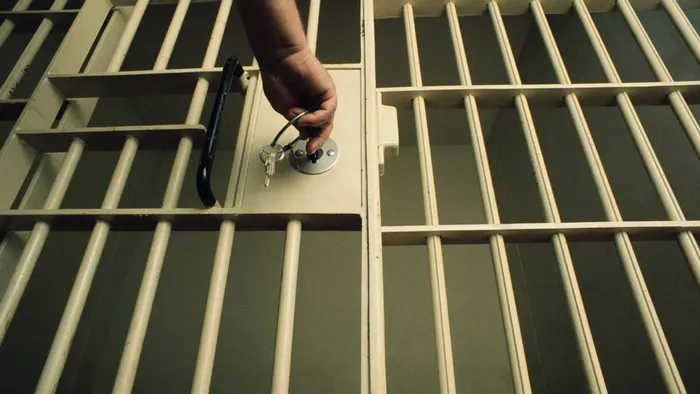Bail Fund pilot project for prisoners to be launched in WC

The Portfolio Committee on Correctional Services conducted visits to correctional facilities in South Africa after concerns were raised about overcrowding. The committee was also concerned that 2,613 detainees have been granted bail of less than R1,000 but cannot afford this amount.
Image: File
OVER 2600 detainees have been granted bail of less than R1000 but cannot afford this amount. They are regarded as prisoners of poverty.
These were some of the findings when the Portfolio Committee on Correctional Services conducted visits to correctional facilities in South Africa, following concerns about overcrowding.
They found that some families do not want to pay bail for some juvenile offenders because of the mischief they would cause in the community, and they believe that they would be better off in detention centres awaiting trial.
The committee was also reacting to the Judicial Inspectorate for Correctional Services (JICS) progress report on the proposed Bail Fund for prisoners of poverty.
On Tuesday, the JICS explained to the committee that the fund is a resource outside state institutions to advance bail monies for deserving remand detainees.
Committee Chairperson Kgomotso Ramolobeng said that work still needs to be done, including an extensive public participation process to establish whether communities would be in favour of such a fund, which would allow offenders awaiting trial to be reintegrated into communities.
The committee heard that a pilot project will soon be launched, likely in the Western Cape, to test the functioning of the fund. Remandees accused of certain crimes (gender-based violence, for example) will likely be excluded.
The JICS held engagements with the Bertha Foundation, the Department of Correctional Services, the National Prosecuting Authority, and civil society to plan a way forward.
The meeting resulted in support for the launch of a pilot project, an institutional base for the pilot project – Africa Criminal Justice Reform at the University of the Western Cape, and an unsolicited offer of philanthropic funding covering nearly half of the cost of the pilot.
Ramolobeng said several committee members believed that communities feared accepting awaiting trial offenders back into communities due to the fear of re-offending.
“During recent oversight visits to correctional centres, we noted lots of awaiting trial detainees, including juveniles. They indicated families do not want to pay even these low amounts, believing that the youths cause mischief in their communities. Our impression was that if they were inside a detention centre, they were out of the family’s hair,” she said.
Ramolobeng said the committee will engage JICS and other stakeholders once it has sight of a more comprehensive plan.
The committee found that correctional facilities are also releasing less offenders than what they are admitting due to the longer prison sentences imposed by the courts.
Statistics provided by the Select Committee on Security and Justice indicate the following:
- As of March 31, 2024, there were 97,026 sentenced offenders, 59,370 remand detainees, and 204 state patients incarcerated in correctional facilities.
- The total number of inmates as of March 31, 2024, was 156,600, against the approved bed space of 105,474.
- In KwaZulu-Natal, there are 8,044 awaiting trial detainees, the Western Cape 13,536, and Gauteng 16,912.
- There are 18,795 inmates serving life sentences.
Cape Times